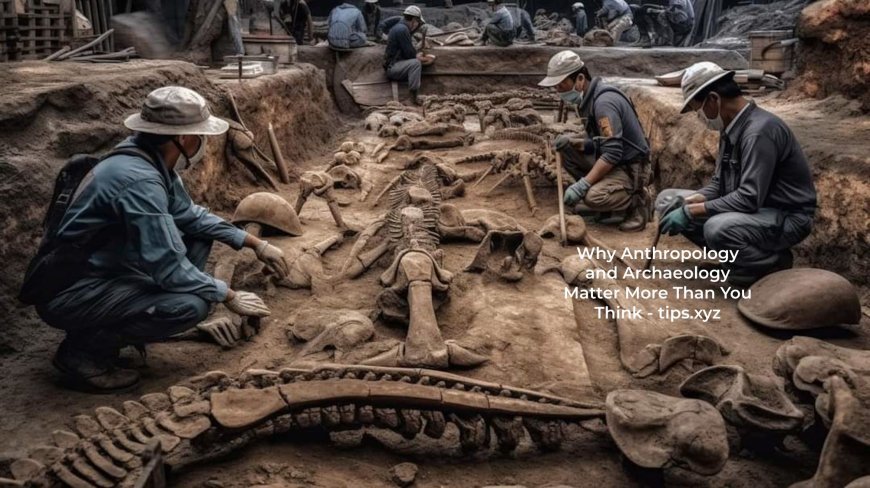Why Anthropology and Archaeology Matter More Than You Think
Discover why anthropology and archaeology matter more than you think—uncovering humanity’s shared past to shape a better future.

Why Matter Archaeology and Anthropology?
Unquestionably, they are vital fields for modern society. Archaeology and anthropology question strong preconceptions and increase our understanding of people, therefore changing our perspective.Anthropology might assist to foster tolerance, empathy, and understanding in a culture of social injustice and cultural misunderstanding.Archaeology also shows human tenacity, cooperation, and adaptability—qualities that could inspire us to address contemporary challenges.
Understanding Human Origin and Development
It is amazing how important archaeology and anthropology are in following human origins. Archaeologists and anthropologists find fossilised bones and stone tools with early human remains. These discoveries show our physical, social, and cognitive evolution. Scientific studies of Australopithecus afarensis and Homo erectus have shown the incremental advances in tool-making, social structures, and symbolic thinking that constitute modern humans.
Study the Ancient Societies
Ancient societies understood sustainability and social resilience in ways that are still relevant today. Indigenous ways have affected projects for sustainable development. Inca terrace farming has been studied by archaeologists who may find methods to help with climate change and food shortages of today. By looking to the past, we can build strong, flexible communities and sustainably manage natural resources.
Confronting Cultural Assumptions
Anthropology shows that much of “normal” is cultural. Anthropologists show how arbitrary many of our ideas and behaviours are by analysing numerous human communities. Exposure helps individuals see their way of life as one of many options, which promotes tolerance. Understanding global cultural differences promotes a more inclusive society that values diversity.
Archaeology in Modern Society
Archaeology protects history and reminds us of our ancestry. The Pyramids of Giza, Machu Picchu, and Pompeii remind us of our predecessors and their inventiveness and endurance.
Recovering Lost History
In recent years, archaeological finds have altered history. Rising pre- Columbian civilisations in the Americas and rediscovered sites like Mohenjo-Daro in Pakistan have subverted Eurocentric civilisation narratives. These discoveries have changed historical accounts and expanded our knowledge of human successes outside of Western settings. These revelations highlight the interdependence of human progress and its many contributions to the global story.
Cultural Preservation
Archaeology is another way to conserve cultural heritage. By protecting archaeological sites, we honour the accomplishments of past societies.Pride, community, and identity are fostered by preservation. Heritage preservation promotes respect and understanding amongst cultures in a globalised society with shifting identities.
The Social Science Impact of Anthropology
To understand human behaviour, anthropology combines biology, psychology, society, and economics. Because of its broad perspective, anthropology may be able to address issues that other social sciences overlook. Anthropology helps us comprehend family, political, and economic systems.
Cultural Identity Formation
Anthropology illuminates cultural identity in an age of increasing globalisation. Anthropologists study other civilisations to help people understand their own culture and beliefs. This awareness encourages cultural pride and intercultural discussion and appreciation, which are crucial in heterogeneous communities.
Promote Social Justice and Inclusion
Anthropologists use their studies to empower marginalised groups and fight inequity. Anthropology's focus on participant observation lets researchers engage with communities personally, giving marginalised perspectives a forum. Anthropologists promote social fairness by addressing health inequities and reporting human rights violations.







